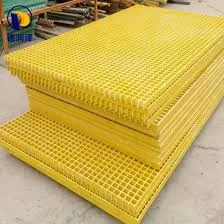
-
 Afrikaans
Afrikaans -
 Albanian
Albanian -
 Amharic
Amharic -
 Arabic
Arabic -
 Armenian
Armenian -
 Azerbaijani
Azerbaijani -
 Basque
Basque -
 Belarusian
Belarusian -
 Bengali
Bengali -
 Bosnian
Bosnian -
 Bulgarian
Bulgarian -
 Catalan
Catalan -
 Cebuano
Cebuano -
 China
China -
 China (Taiwan)
China (Taiwan) -
 Corsican
Corsican -
 Croatian
Croatian -
 Czech
Czech -
 Danish
Danish -
 Dutch
Dutch -
 English
English -
 Esperanto
Esperanto -
 Estonian
Estonian -
 Finnish
Finnish -
 French
French -
 Frisian
Frisian -
 Galician
Galician -
 Georgian
Georgian -
 German
German -
 Greek
Greek -
 Gujarati
Gujarati -
 Haitian Creole
Haitian Creole -
 hausa
hausa -
 hawaiian
hawaiian -
 Hebrew
Hebrew -
 Hindi
Hindi -
 Miao
Miao -
 Hungarian
Hungarian -
 Icelandic
Icelandic -
 igbo
igbo -
 Indonesian
Indonesian -
 irish
irish -
 Italian
Italian -
 Japanese
Japanese -
 Javanese
Javanese -
 Kannada
Kannada -
 kazakh
kazakh -
 Khmer
Khmer -
 Rwandese
Rwandese -
 Korean
Korean -
 Kurdish
Kurdish -
 Kyrgyz
Kyrgyz -
 Lao
Lao -
 Latin
Latin -
 Latvian
Latvian -
 Lithuanian
Lithuanian -
 Luxembourgish
Luxembourgish -
 Macedonian
Macedonian -
 Malgashi
Malgashi -
 Malay
Malay -
 Malayalam
Malayalam -
 Maltese
Maltese -
 Maori
Maori -
 Marathi
Marathi -
 Mongolian
Mongolian -
 Myanmar
Myanmar -
 Nepali
Nepali -
 Norwegian
Norwegian -
 Norwegian
Norwegian -
 Occitan
Occitan -
 Pashto
Pashto -
 Persian
Persian -
 Polish
Polish -
 Portuguese
Portuguese -
 Punjabi
Punjabi -
 Romanian
Romanian -
 Russian
Russian -
 Samoan
Samoan -
 Scottish Gaelic
Scottish Gaelic -
 Serbian
Serbian -
 Sesotho
Sesotho -
 Shona
Shona -
 Sindhi
Sindhi -
 Sinhala
Sinhala -
 Slovak
Slovak -
 Slovenian
Slovenian -
 Somali
Somali -
 Spanish
Spanish -
 Sundanese
Sundanese -
 Swahili
Swahili -
 Swedish
Swedish -
 Tagalog
Tagalog -
 Tajik
Tajik -
 Tamil
Tamil -
 Tatar
Tatar -
 Telugu
Telugu -
 Thai
Thai -
 Turkish
Turkish -
 Turkmen
Turkmen -
 Ukrainian
Ukrainian -
 Urdu
Urdu -
 Uighur
Uighur -
 Uzbek
Uzbek -
 Vietnamese
Vietnamese -
 Welsh
Welsh -
 Bantu
Bantu -
 Yiddish
Yiddish -
 Yoruba
Yoruba -
 Zulu
Zulu
grp pipe
Understanding GRP Pipes A Comprehensive Overview
Glass Reinforced Plastic (GRP) pipes, also known as Glass Fiber Reinforced Plastic (GFRP) pipes, have emerged as a revolutionary material in various industries, particularly in construction, water management, and chemical processing. These pipes are renowned for their lightweight, durability, and resistance to corrosion, making them an ideal choice for many applications where traditional materials such as steel or concrete may fall short.
What are GRP Pipes?
GRP pipes are composite materials made from a combination of fiberglass and a resin matrix, usually polyester, vinyl ester, or epoxy. The fiberglass provides strength and rigidity, while the resin contributes to the pipe's chemical resistance and durability. The manufacturing process typically involves a technique called filament winding, where strands of fiberglass are wound around a mold and impregnated with resin, creating a robust and seamless pipe structure.
Advantages of GRP Pipes
1. Corrosion Resistance One of the most significant advantages of GRP pipes is their high resistance to corrosion. Unlike traditional metal pipes, GRP pipes are not susceptible to rust or degradation from chemicals, making them perfect for transporting corrosive substances in chemical industries and sewage systems.
2. Lightweight GRP pipes are considerably lighter than their metal counterparts, which not only facilitates easier handling and installation but also reduces transportation costs. This lightweight nature allows for lower installation expenses, especially in remote areas where heavy machinery may not be available.
3. High Strength-to-Weight Ratio GRP pipes combine the lightweight characteristics with exceptional strength. They can withstand high pressures and tensile loads, which makes them suitable for various demanding applications, including pressurized water systems and oil pipelines.
4. Thermal Insulation These pipes provide good thermal insulation, which is beneficial in applications where temperature control is critical. This insulation helps in minimizing heat loss, making them more energy-efficient.
5. Durability and Longevity GRP pipes exhibit excellent durability, usually lasting more than 50 years in service. This longevity reduces the need for frequent replacements, contributing to lower life cycle costs.
grp pipe

Applications of GRP Pipes
GRP pipes are versatile and find applications across various sectors.
- Water Supply and Wastewater They are widely used for drinking water supply lines, sewer systems, and wastewater treatment plants due to their corrosion resistance and durability. - Oil and Gas The oil and gas industry benefits from GRP pipes for transporting hydrocarbons and other chemicals safely. Their resistance to harsh environments is a significant advantage in offshore and onshore applications.
- Industrial Applications Many industries use GRP pipes to transport corrosive liquids and gases, making them indispensable in chemical processing plants, pulp and paper industry, and food processing.
- Irrigation Systems Due to their lightweight and robust nature, GRP pipes are also utilized in agricultural applications for irrigation, offering efficient water distribution.
Challenges and Considerations
Despite their numerous advantages, GRP pipes are not without challenges. Installation requires skilled labor, as improper handling can lead to damages. Additionally, the initial cost may be higher compared to traditional piping materials, although the long-term savings from decreased maintenance and long lifespan can offset this initial investment. Furthermore, GRP pipes can be sensitive to UV radiation, necessitating protective coatings in outdoor applications.
Conclusion
In conclusion, GRP pipes represent a significant innovation in pipeline technology, offering a robust solution characterized by their lightweight, corrosion resistance, and longevity. As industries continue to seek efficient and durable materials for infrastructure development and maintenance, GRP pipes stand out as a forward-thinking choice. From water supply systems to chemical transportation, their versatility and performance make them paramount for modern engineering solutions. As technology advances and production methods improve, we can expect GRP pipes to play an even more significant role in shaping the landscape of industrial piping systems in the future.









